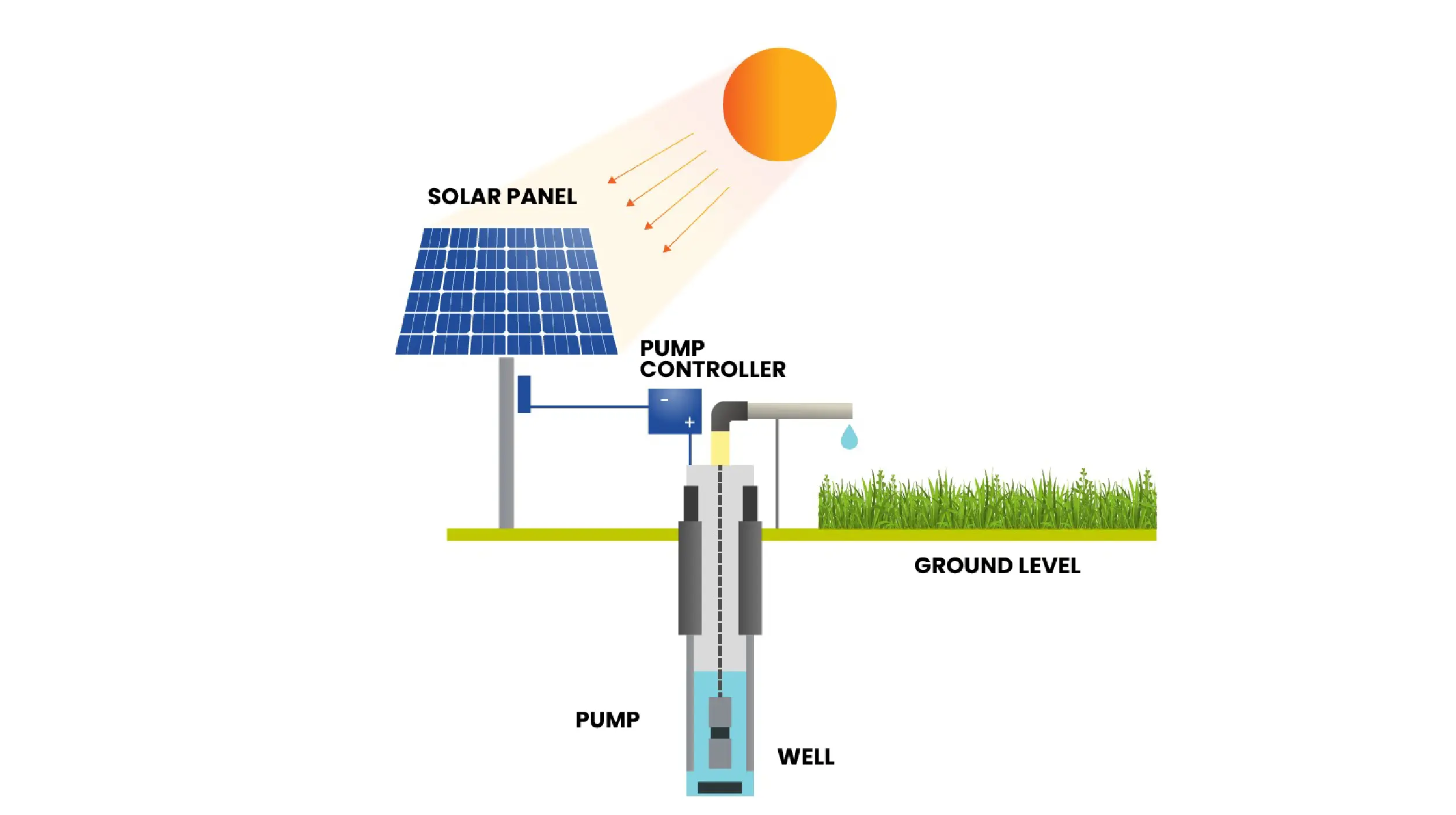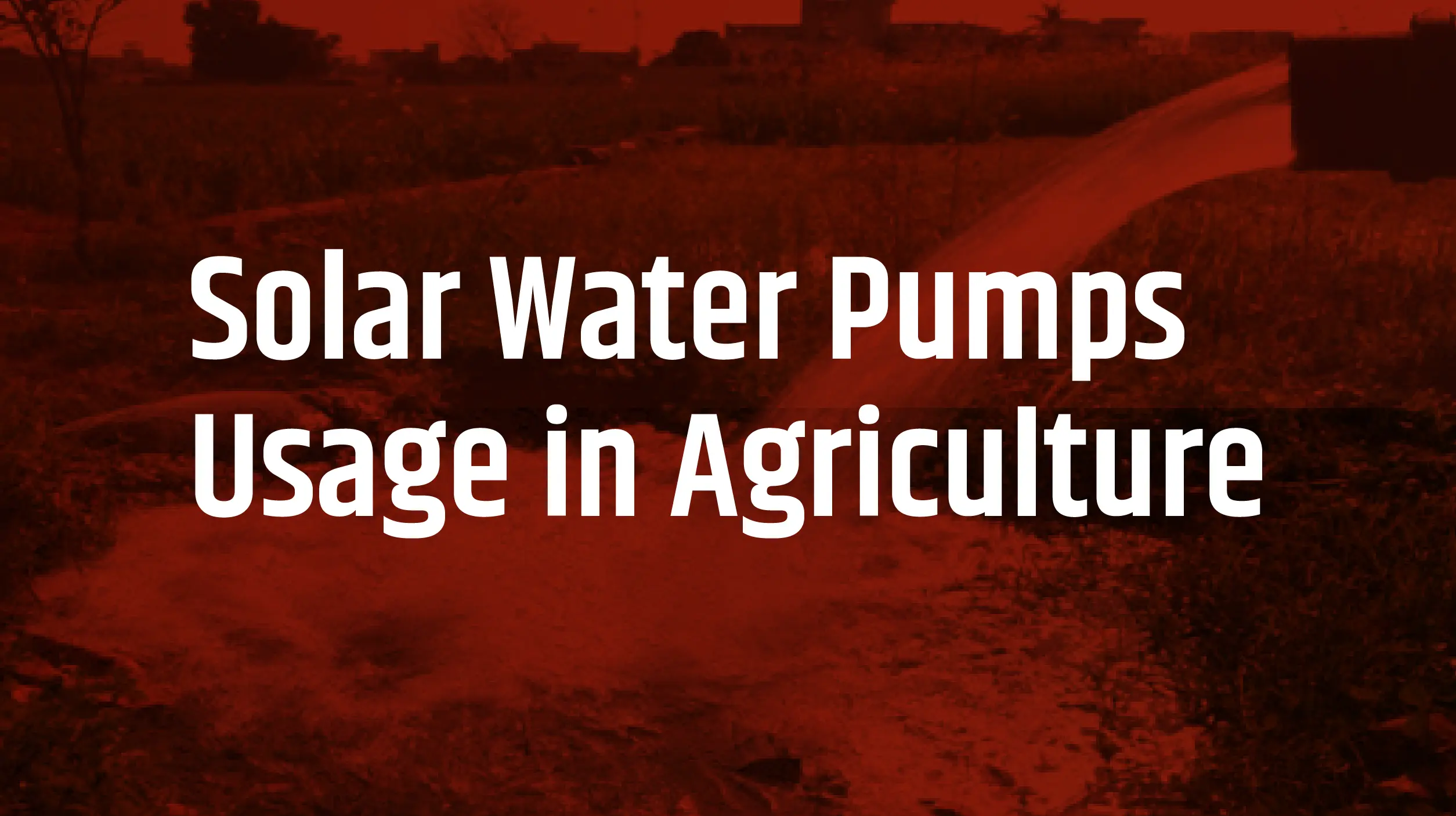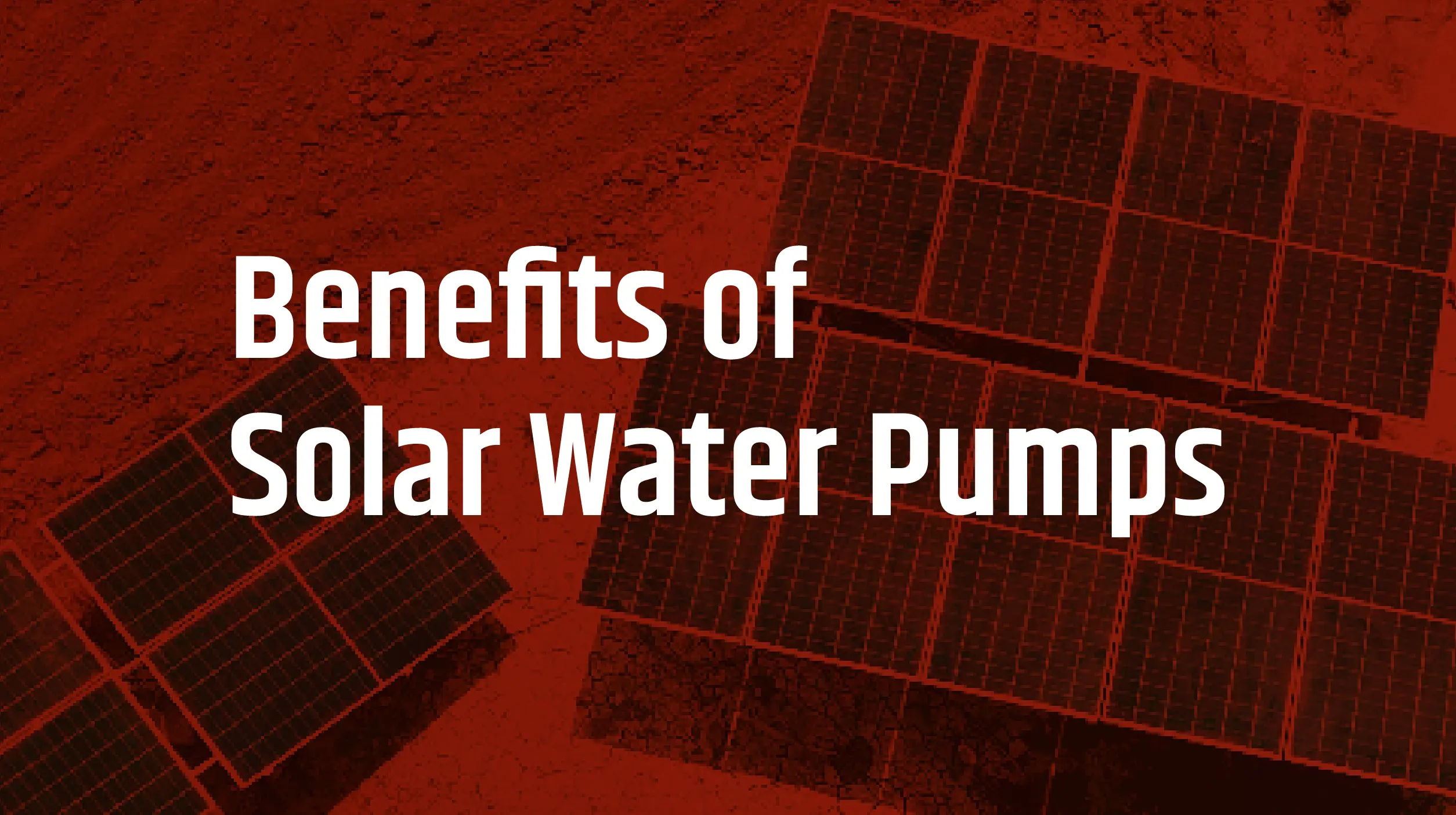Uses of solar water pumps in agriculture and how they help farmers with irrigation, water management, and cost savings.

What Are The Uses of Solar Water Pumps in Agriculture?
Agriculture, the one aspect of our economy that's very crucial, can also benefit from the invention of solar water pumps. Being an important practice and also the livelihood of many, this sector deserves more attention and growth. As we move to more sustainable agricultural practices, solar energy can be incorporated into this to make it better and more efficient. Solar water pumps in agriculture are one brilliant way to do that. Hand pumps or electric pumps can be replaced with efficient solar pumps to save on energy and human efforts.
We live in a world that is run by energy. With the rise in fuel and electricity prices, solar energy seems to be a much safer and better alternative. Especially for remote areas where constant grid electricity seems a far-fetched dream, types of solar energy play a major role in creating a better and more fulfilling environment. Let's understand how solar energy is put to use in agriculture with solar water pumps.

What is a Solar Pump?
Before understanding why there's a need for solar pumps, let's focus on the question: What is a Solar Pump?
In very simple words, a solar pump is just like any other pump but instead of being operated through hands or electricity, it works with solar energy. A solar water pump hence doesn't contribute to polluting the environment, is not an exhaustible source and also reduces your financial burden to a certain extent. A solar (photovoltaic) panel or a solar grid that is made up of several solar cells is responsible for generating electricity and helping run water pumps through it. It can be a real lifesaver if grid electricity options fail out and the weather is not suitable for some time.
These solar pumps apart from agriculture, can also be used in homes or other places. Generally, the whole set-up required for these solar pumps involves components like a solar panel array, solar charger controller, water storage tank, fuse wiring, water pump, etc. With KLK ventures, you can rest assured of the whole process being effortlessly completed with minimum effort, energy and time on your part.

The Uses of Solar Water Pumps in Agriculture
People are turning to solar pumps due to them being a more sustainable and environmentally-friendly option. Solar pumps are used for:
-
Crop Irrigation:
The most basic use of solar pumps is for irrigating crops. The water needs of agriculture might not be fulfilled properly due to the inconsistency and sometimes shortage of water in many parts of the world. This is where solar pumps enter the picture. These pumps help farmers distribute water to their fields by drawing water from underground wells or other sources.
Different irrigation systems supported by solar pumps:
- Drip irrigation: Through the drip irrigation system the roots of the plants get watered ensuring there is sufficient water supply and no wastage.
- Sprinkler irrigation: This system is designed keeping the large surface area in mind, it involves spraying water over the crops.
- Surface irrigation: This system is typically used for rice and large-scale crop farming where water gets used up in excess.
-
Livestock Watering:
Apart from watering crops and plants, solar pumps are also useful in providing water to livestock. Without constant sources of water, farmers need to transport water to pastures for their cattle. Setting up solar pumps in such areas ensures a proper supply of water for animals and cattle. This reduces the manual work for farmers and workers and offers a consistent source of water.
-
Greenhouse Irrigation:
Greenhouses provide a temperature-regulated environment for crops to grow. It also requires a constant water supply, solar pumps are what help fulfil the requirement effectively. It is a more cost-effective way to water the crops in the greenhouse.
-
Fish Farming:
Solar pumps are useful when it comes to fisheries. Clean water needs to be circulated in the fish ponds regularly so that the fish receive enough oxygen. Solar pumps are used to supply clean water to the fish ponds, this helps in maintaining a good environment for fish growth.
-
Water Storage:
Another important function of solar pumps is to fill the water storage tanks which store the water for later use. Solar pumps become useful for times when there are unfavourable weather conditions, ensuring security by collecting water in the storage tanks.

Benefits of Solar Water Pumps
As solar pumps work independently of the electricity grid and fuel, they are highly sustainable for agricultural operations. Some of the benefits of choosing solar pumps are:
-
Renewable in Nature: Solar pumps harness the sun's energy for its work. As the sun is available almost everywhere it is inexhaustible and clean. Using Solar pumps greatly reduces dependency on fossil fuels and greenhouse gas emissions. It contributes to a greater and more sustainable environment free from the carbon footprint.
-
Cost-effective process: After the initial cost of installing these solar pumps, in later stages, their operating cost turns out to be minimal. These are independent of fuel and do not require any electricity thus reducing bills and expenses. This is mostly effective in remote areas where fuel transposition and grid connectivity are not possible.
-
Requires Low-Maintenance: As compared to other conventional pumps, solar pumps require fewer moving parts. There is a low chance of any mechanical failures and this reduces the cost of maintenance and all the time wasted in repairing. This saves farmers from relying on external technicians that would cost a fortune to them.
-
Increase in Crop-yielding: Even in areas that lack electricity facilities, solar water pumps are proven to be very beneficial as they provide consistent and reliable irrigation to the farmers. They even support multiple cropping facilities, very efficiently increasing agricultural productivity. These solar-powered water pumps keep the soil moist at optimum levels, enhancing crop health.
-
Conservation of Water: With advanced sensors and control facilities many solar pump systems reduce water wastage and help in proper utilisation of the resource. They prevent over-watering of crops and schedule precise irrigation time thus promoting water conservation. Farmers can use water through these solar water systems, without exhausting it, and reducing the risk of running out of water.
-
Versatile in Nature: Solar pumps can perform diverse functions, they can be used in garden small households or large agricultural fields. They are highly efficient and also adaptable to various farming scenarios meeting different agricultural needs. They can be used for livestock watering, irrigation and water supply.
Conclusion
The popularity of solar water pumps has continued to grow in the past decade. Solar pumps have emerged as a cost-effective and sustainable solution to agriculture problems. These solar energy-driven pumps are what make agriculture easy. Irrigation and water supply for various other needs becomes more convenient, solar water pumps have reduced farmers' dependence on expensive and unreliable electricity.
KLK Ventures contributes to sustainability and environmental wellness by helping the agricultural sector in India become independent. The solar pumps reducing the hassle of electricity bills and inconsistent services help the agriculture sector grow without any obstacles. At KLK Ventures, our focus is on providing solar solutions that are not only reliable and cost-effective but also future-proof and sustainable in the long run.
